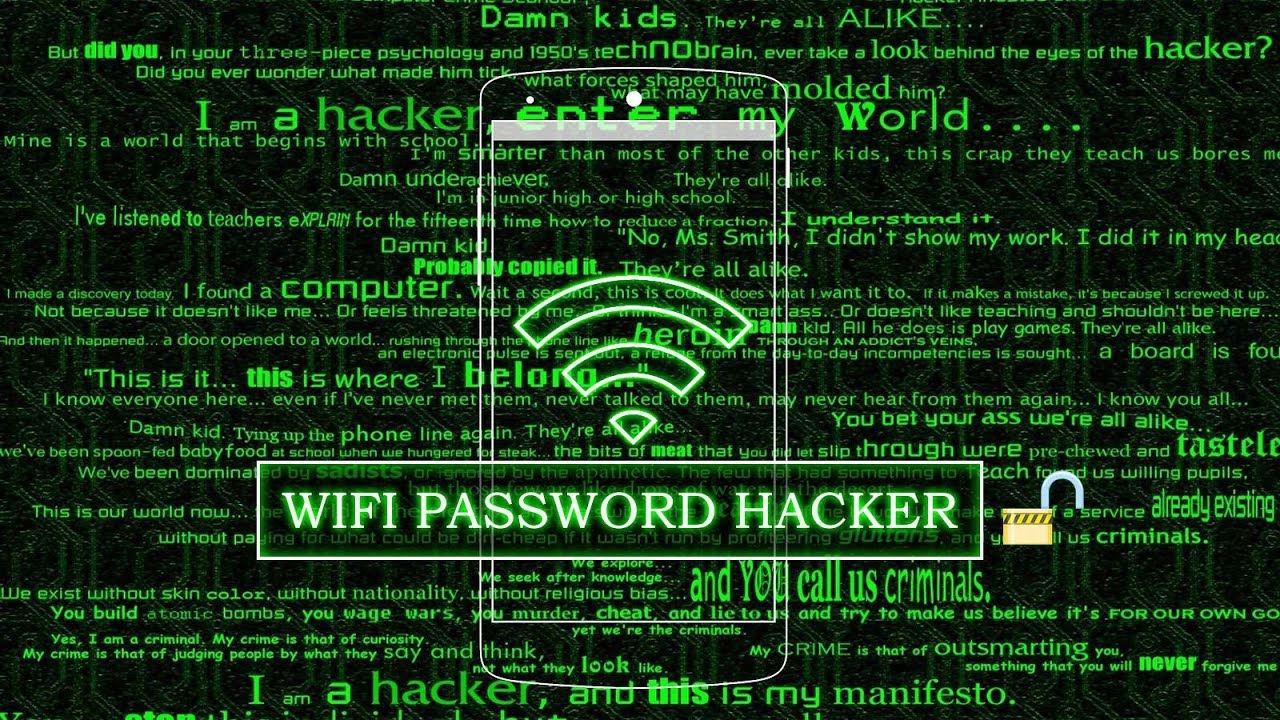An app that hacks wifi passwords – In a world where connectivity reigns supreme, an app that hacks Wi-Fi passwords has emerged as a digital Robin Hood, promising to liberate the internet-starved masses from the tyranny of locked networks. But as we venture into this realm of virtual lock-picking, we must tread carefully, navigating the ethical and technical complexities that surround this controversial tool.
Join us as we unravel the inner workings of Wi-Fi password hacking, exploring the methods, countermeasures, and social engineering techniques that define this enigmatic domain. Together, we’ll navigate the legal minefield, safeguard our networks, and unravel the secrets that lie hidden behind those encrypted barriers.
Ethical Implications: An App That Hacks Wifi Passwords
Hacking Wi-Fi passwords raises significant ethical concerns. It is a violation of privacy and can have severe consequences for individuals and businesses.
Legal Consequences
- Unauthorized access to computer systems, including Wi-Fi networks, is a federal crime in the United States.
- Hackers can face fines, imprisonment, or both.
- In some cases, Wi-Fi password hacking can be considered a form of cyberterrorism.
Harm to Individuals and Businesses
- Hackers can use compromised Wi-Fi networks to steal personal information, such as passwords, credit card numbers, and social security numbers.
- They can also launch DDoS attacks, disrupt online services, and spread malware.
- Businesses can suffer financial losses, reputational damage, and legal liability as a result of Wi-Fi password hacking.
Case Examples
- In 2018, a hacker was sentenced to 18 months in prison for hacking into a Wi-Fi network and stealing personal information from over 100 people.
- In 2019, a group of hackers was arrested for launching a DDoS attack on a major bank by compromising the Wi-Fi network of a nearby business.
Technical Methods
There are several methods used to hack Wi-Fi passwords. Each method has its own strengths and weaknesses.
Brute Force Attack
This method involves trying every possible password combination until the correct one is found. It is a slow and inefficient method, but it can be effective against weak passwords.
Dictionary Attack
This method uses a list of common passwords to try to guess the correct one. It is more efficient than a brute force attack, but it is still not very effective against strong passwords.
Rainbow Table Attack
This method uses a precomputed table of hashes to quickly find the password associated with a given hash. It is much faster than a brute force or dictionary attack, but it is only effective against certain types of hashes.
Phishing Attack
This method involves tricking a user into entering their password into a fake website or email. It is a very effective method, but it requires the attacker to have some social engineering skills.
Countermeasures

There are several steps that can be taken to prevent Wi-Fi password hacking.
Strong Passwords
The most important step is to use a strong password. A strong password is at least 12 characters long and contains a mix of uppercase and lowercase letters, numbers, and symbols.
WPA2 Encryption, An app that hacks wifi passwords
WPA2 encryption is the most secure type of encryption for Wi-Fi networks. It is important to make sure that your router is using WPA2 encryption.
MAC Address Filtering
MAC address filtering allows you to restrict access to your Wi-Fi network to specific devices. This can help to prevent unauthorized users from accessing your network.
Firewalls
Firewalls can help to protect your network from unauthorized access. They can be configured to block traffic from specific IP addresses or ports.
Intrusion Detection Systems
Intrusion detection systems can help to detect and respond to unauthorized access attempts. They can be configured to send alerts or take action to block suspicious activity.
Final Conclusion
As we reach the end of our Wi-Fi hacking odyssey, let us remember that knowledge is a double-edged sword. The power to unlock networks can be a force for good, but it can also be a tool for malicious intent.
Let us wield this knowledge responsibly, respecting the boundaries of privacy and the sanctity of others’ digital domains.
In the ever-evolving landscape of cybersecurity, the battle between hackers and defenders continues. As technology advances, so too must our vigilance. By understanding the intricacies of Wi-Fi password hacking, we empower ourselves to protect our networks and navigate the digital realm with confidence and security.
Questions and Answers
Is it legal to use an app that hacks Wi-Fi passwords?
The legality of Wi-Fi password hacking varies depending on the jurisdiction. In many countries, it is illegal to hack into someone else’s Wi-Fi network without their permission.
Can I get caught if I use an app that hacks Wi-Fi passwords?
Yes, you can get caught if you use an app that hacks Wi-Fi passwords. If you are caught, you could face legal penalties, including fines or imprisonment.
What are the risks of using an app that hacks Wi-Fi passwords?
There are several risks associated with using an app that hacks Wi-Fi passwords. These risks include:
- Legal penalties
- Damage to your reputation
- Loss of trust from your friends and family